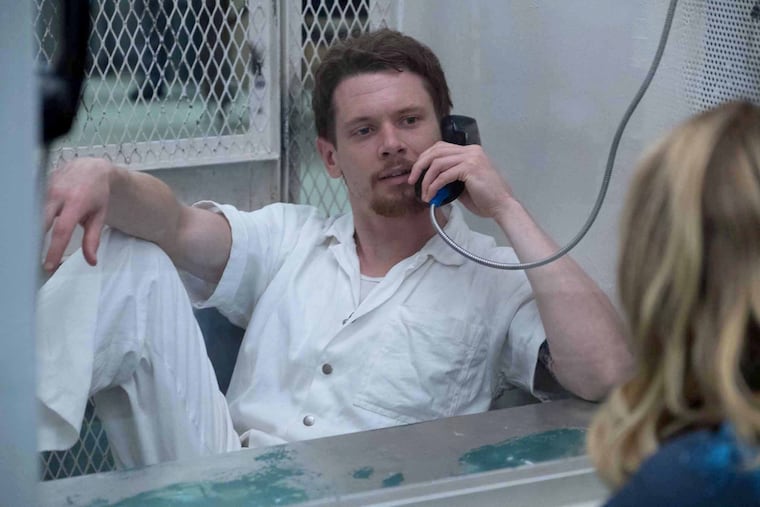How a movie about an innocent man executed for a crime he didn’t commit could lead to social change
Director Ed Zwick talks about his docudrama 'Trial By Fire.'

On Dec. 23, 1991, in Texas, three young girls died as a result of a fire in their home, an event so gruesome and senseless that sense needed to be made of it.
“The basic human desire to assign meaning to something that is otherwise meaningless is a strong impulse in society and always has been. The guy in the cave, when the boy gets killed by a saber tooth tiger, has to come up with a story to explain it. It can’t be random,” said director Ed Zwick, whose latest movie, Trial by Fire, tells the story of events surrounding the deaths of those girls and the prosecution and execution of Cameron Todd Willingham, the girls’ father, who was found guilty of their murder.
But his is not the only narrative in play. The first was advanced by the Texas prosecutor John Jackson, presenting purported evidence of arson that pointed to Willingham , played by Jack O’Connell..
Then came a second narrative — a New Yorker article by David Grann about a woman named Elizabeth Gilbert (Laura Dern), who volunteered to be Willingham’s pen pal and who became so interested in his declarations of innocence that she reinvestigated the case, finding countervailing forensic evidence and undermining the credibility of a jailhouse informant. (The Texas Bar Association took Jackson to trial on ethics charges, but he was acquitted last year.)
The article so captivated Zwick that he optioned it for the movie — framing the conviction as a rush to judgment and positioning Willingham as a convenient villain in a story that needed one. He had a record, he was poor, poorly educated, violent. The movie makes the point that in our justice system, such defendants are convictable even if they are not necessarily guilty.
“Inevitably, there is reductionism and compression and inevitable changes that one has to do in a story. On the other hand, I feel a responsibility because — for better or for worse — these moves are going to become, in some cases, a disproportionate part of the permanent record,” he said. “So I feel an obligation to have the facts right. Which is to say not amplify them or change their order. That said, it is the dramatist’s instinct and obligation to supply that subtextual or inner motivational stuff and relationship stuff that is not part of reporting. It’s speculative, it psychobiography.”
In Trial by Fire, that psychobiography plays out in the unusual relationship between Gilbert and Willingham. As played by Dern, Gilbert is a woman with a good heart but also with a good BS detector — she’s aware of Willingham’s reputation as a charmer, and she’s willing to consider that she’s being played. But she also wants to know whether he’s on the level, so she conducts her own investigation — reinterviewing the jailhouse informant, the defense attorney, finding her own defense experts (with the help of the Innocence Project), and raising serious questions about Willingham’s conviction.
Zwick said Dern’s willingness to make the movie “for no money” is one of the main reasons it exists at all. Zwick had a hard time finding funding for the project in Hollywood. In fact, he didn’t find the money in Hollywood. It came from Alex Soros — son of George— who’s funded various criminal justice reform initiatives, and who saw Trial by Fire as a means of advancing the cause.
Zwick said Soros saw this as a way of making storytelling part of his mission. I asked Zwick whether movies like this can really make a difference, or whether our culture has developed into an arena for competing stories — narrative versus counternarrative in an endless Pyrrhic tug-of-war for attention, hearts, and minds.
“That’s a good question. I personally think that many people who say they don’t believe in climate change actually do believe in climate change and they’re terrified of it. So they’re eager to accept a story that tells them it’s not happening because it’s safer and more comforting to believe that than to confront the abyss,” he said.
Zwick, a 30-year veteran of Hollywood (he and producing partner Marshall Herksovitz, a Lower Merion native, produced the Philadelphia-set thirtysomething) said that based on his long view, the right story at the right time can make a difference.
“People say the arc of history bends towards justice. But they forget the part about the arc of history being long. It’s looooong. But I would submit that these stories matter. These podcasts you’re seeing, like Serial and [Netflix’s] Making a Murderer, they’ve found their way into the conversation, and changed it. So it’s not just Law and Order, and that model. I think they’re really changing people’s whole notion of the concept of innocence. People have a new sensitivity toward all kinds of socioeconomic factors that go into punishment,“ he said.
“Paradigms do shift. Without television, for instance, I would maintain that same-sex marriage would not have entered the culture as it has, or when it has. It’s hard to pinpoint the tipping point in these things, but those points exist,” he said.
Speaking of television, that’s where Zwick and Herskovitz are focused next — developing a new show. When and how is anybody’s guess.
“Every time a I finish a project, I turn around and look at the industry and see that it’s completely changed. I have to find a completely new way to do it.”